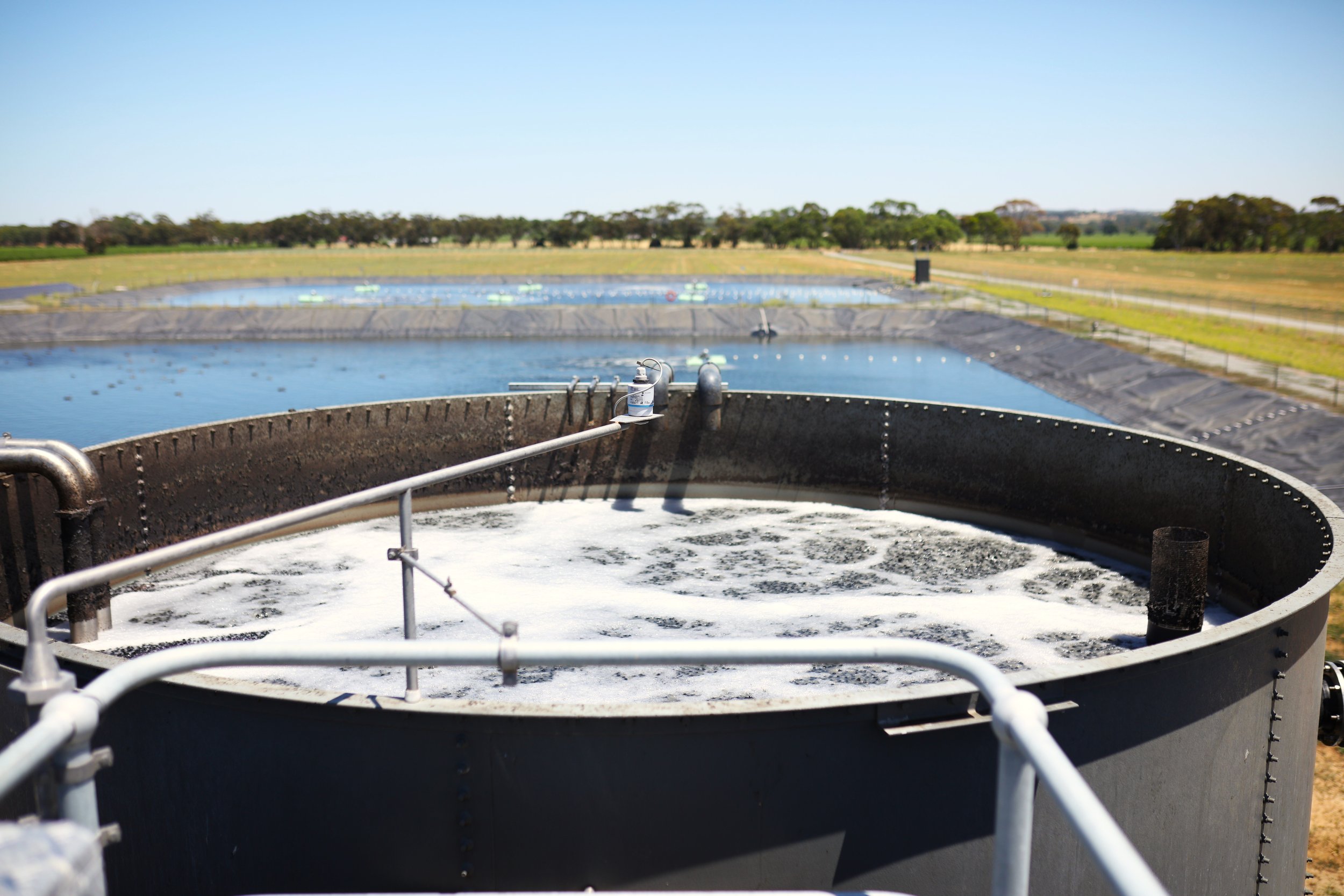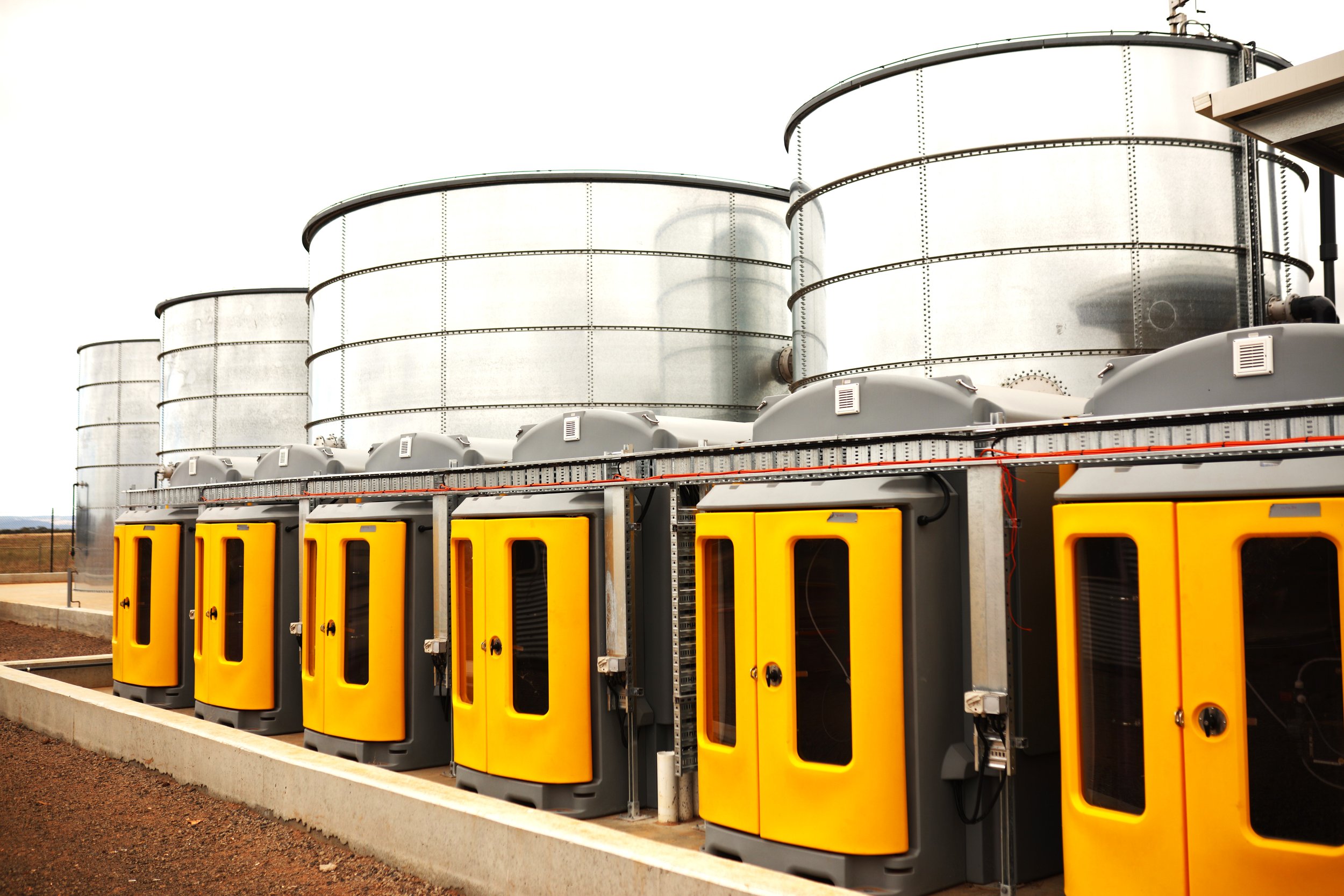
Operating Costs of an MBBR Wastewater Treatment System
For Meat Processors, Food & Beverage Processors and Rendering Sites
Contents
Section 1: Energy Costs
1.1 Energy Benchmarking
1.2 Energy-Saving Tips
1.3 Energy Cost Calculation
Section 2: Maintenance Costs
2.1 Preventive Maintenance
2.2 Spare Parts Inventory
2.3 Maintenance Cost Calculation
Section 3: Overall Operating Expenses
3.1 Chemical Costs
3.2 Sludge Management
3.3 Staff Training and Education
Conclusion
In your pursuit of efficient wastewater management for your site, you've come across the Moving Bed Biofilm Reactor (MBBR) system—an innovative and reliable solution.
However, before diving into the implementation, it's crucial to have a clear understanding of the operating costs associated with an MBBR system.
Beyond the initial setup cost, this comprehensive guide will equip you with practical insights into the energy use, maintenance, and overall operating expenses of an MBBR system. By the end, you'll be armed with the knowledge needed to make informed decisions and optimize the financial aspect of your wastewater treatment process.
Section 1: Energy Costs
Energy consumption plays a significant role in the operating costs of an MBBR system. By focusing on energy optimisation, you can reduce expenses while maintaining an efficient treatment process.
1.1. Energy Benchmarking
To gauge the energy efficiency of your MBBR system, compare your energy consumption to industry benchmarks.
One estimate of the average energy consumption of an MBBR wastewater treatment plant ranges between 0.5 to 1.5 kWh/m³ treated wastewater.
1.2. Energy-Saving Tips
Implement variable frequency drives (VFDs) to control motor speed and optimize energy consumption based on demand.
Conduct regular inspections to detect and address air leaks, which can significantly impact energy efficiency.
Consider installing high-efficiency motors and pumps to reduce energy consumption without compromising performance.
Opt for energy-efficient aeration equipment, such as fine bubble diffusers, to enhance oxygen transfer efficiency. NOTE: It is important to balance the relatively high maintenance requirements of fine-bubble diffusers with their energy efficiency.
1.3. Energy Cost Calculation
To estimate your energy costs, multiply the energy consumption per cubic meter (kWh/m³) by your facility's annual wastewater volume (m³/year).
Multiply this value by your energy rate per kilowatt-hour (kWh) to obtain your annual energy expenditure for operating the MBBR system.
Section 2: Maintenance Costs
Proper maintenance is vital to ensure the optimal functioning of your MBBR system and avoid costly breakdowns. By implementing proactive maintenance strategies, you can minimize unexpected expenses and maximize the longevity of your equipment.
2.1. Preventative Maintenance
Regularly scheduled preventive maintenance tasks are essential for identifying and addressing minor issues before they escalate.
These tasks include cleaning filters, inspecting pumps, monitoring dissolved oxygen levels, and conducting routine system checks. By adhering to a preventive maintenance schedule, you can extend the lifespan of your MBBR system and reduce the risk of major malfunctions.
2.2. Spare Parts Inventory
Maintaining an inventory of critical spare parts is a proactive measure to minimize downtime and expedite repairs.
Identify the components most susceptible to wear and establish a spare parts management system to ensure their availability.
Collaborating with reputable suppliers like Waterform can provide access to quality spare parts specific to your MBBR system, reducing the risk of compatibility issues.
2.3. Maintenance Cost Calculation
To estimate your maintenance costs, consider factors such as labor, spare parts, and service contracts. Calculate your annual maintenance expense by summing up the costs of routine maintenance tasks, spare parts replacement, and any external service contracts.
Divide this sum by your facility's annual wastewater volume to determine the maintenance cost per cubic meter of treated wastewater.
Section 3: Overall Operating Expenses
Aside from energy and maintenance costs, several other factors contribute to the overall operating expenses of an MBBR system. Being aware of these considerations will enable you to make informed decisions and optimize your budget.
3.1. Chemical Costs
Depending on your specific wastewater characteristics, you may require chemicals to enhance the treatment process. These chemicals can include coagulants, flocculants, pH adjusters, and disinfectants.
Establishing a reliable supplier relationship (with a reputable specialist chemical supplier like Waterform FlowCare) and accurately monitoring chemical dosages can help you optimize chemical costs.
3.2. Sludge Management
MBBR systems generate sludge as a byproduct of the treatment process. Proper sludge management is essential to ensure efficient system operation and comply with regulations.
Consider the costs associated with sludge thickening, dewatering, and disposal when calculating your overall operating expenses.
3.3. Staff Training and Education
Investing in comprehensive staff training and education is crucial for maximizing the efficiency of your MBBR system. Well-trained operators can identify issues early on, perform routine maintenance, and optimize system performance.
Budget for ongoing training programs to keep your team equipped with the knowledge necessary to operate the system effectively.
Conclusion
By thoroughly understanding the operating costs associated with an MBBR system, you are well-equipped to make informed decisions and optimize your wastewater treatment process.
Remember to benchmark your energy consumption, implement energy-saving measures, and calculate your energy costs accurately.
Emphasize preventive maintenance, establish a spare parts inventory, and factor in maintenance costs when budgeting.
Additionally, consider chemical expenses, sludge management, and staff training to capture a comprehensive overview of your overall operating expenses.
Waterform's experience in delivering ultraBiox MBBR solutions for food and beverage processing sites makes them a valuable partner for your wastewater treatment needs. By prioritizing cost optimization alongside operational efficiency, you can achieve sustainable wastewater management while ensuring the financial viability of your facility.


